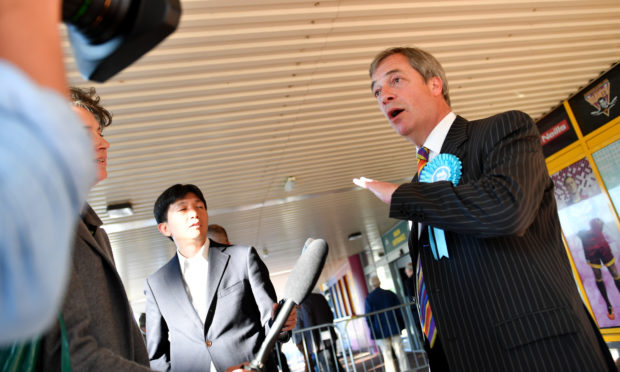When my sister-in-law stood in the recent local elections in England, I cheered her on. And when she won a seat on her parish council, we cracked open the Champagne.
She rejected all the main parties to stand as an independent and the reason she was elected was because voters in her neck of the woods, as here, were no doubt fed up with the same old politics.
It also makes more sense to vote for a person rather than a party on a local level, especially if that individual is known in her community and trusted to represent its interests.
But independents don’t normally make much of a mark in national campaigns and tend to be dismissed as single-issue mavericks.
These are not normal times, however, and faced with next week’s elections to the European Parliament, all voting options must now be considered. The problem is that none of these are attractive, and for many of us the only box we could tick with complete conviction is “undecided”.
The Independent Group – now called Change UK and made up of disaffected Tory and Labour supporters – is fielding 70 candidates on May 23.
As a pro-Remain collective, with a few familiar faces such as the BBC’s Gavin Esler and the journalist and sister of Boris, Rachel Johnson, this lot hold a moderate position that more or less chimes with my own views.
But their very existence is splitting the anti-Brexit vote and they have so far refused to co-operate with other pro-Remain parties, such as the Lib Dems.
In their first test, the forthcoming Peterborough by-election, they withdrew their candidate, ostensibly after pressure from Labour.
But the main argument for not voting for these independents is because they back a People’s Vote – that is, they belong to the movement that seeks to subvert British democracy.
A second referendum so soon after the first one – whether on leaving Europe or leaving the UK – treats the electorate with contempt, and should not be condoned, even by a Remainer.
So that rules out the other most appealing choice next week. Looking at the Scottish Lib Dems’ leaflet, I found much to like.
“I am sure you will agree that Brexit is a national embarrassment… even those who campaigned for Brexit cannot agree what Brexit actually is,” wrote Willie Rennie, the party’s leader in Scotland.
He pointed out that UKIP won a seat north of the border in the last European election and that the Lib Dems are best placed to stop them.
It’s very tempting, particularly as they are the most benign of all the main parties and are looking good, polling at 12% nationally.
But they too want to overturn the 2016 result with a People’s Vote.
What about Labour then, which I have voted for in most of the ballots held in Scotland over the past 20 years? The motivation has always been to keep out the SNP, and Labour is the best bet where I live.
Tactical voting is less straightforward this time, though, since Scotland is a whole electoral region. Would a vote for Labour, all over the show on Europe, hold back the nationalists?
Or should the tactical vote be directed at seeing off Nigel Farage’s Brexit Party, on course to win with 34% of the vote, according to polls?
On balance, abhorrent though Farage and his followers are, they do not pose a threat to the union. The European results are rarely mirrored in domestic elections, and a strong showing by pro-Brexiteers would be less damaging to the UK than an SNP triumph next Thursday.
If you believe that preserving Britain is even more important than staying in the EU, then better to defeat the SNP than Farage. But that doesn’t mean voting for the Brexit Party.
As for the Conservatives, some of their own activists have reportedly said they will switch allegiance.
This election has been described by the Education Secretary Damian Hinds as the “ultimate protest vote”.
But given that all of our obsessively partisan political representatives have failed the country over Brexit, the dilemma is who to protest against.
